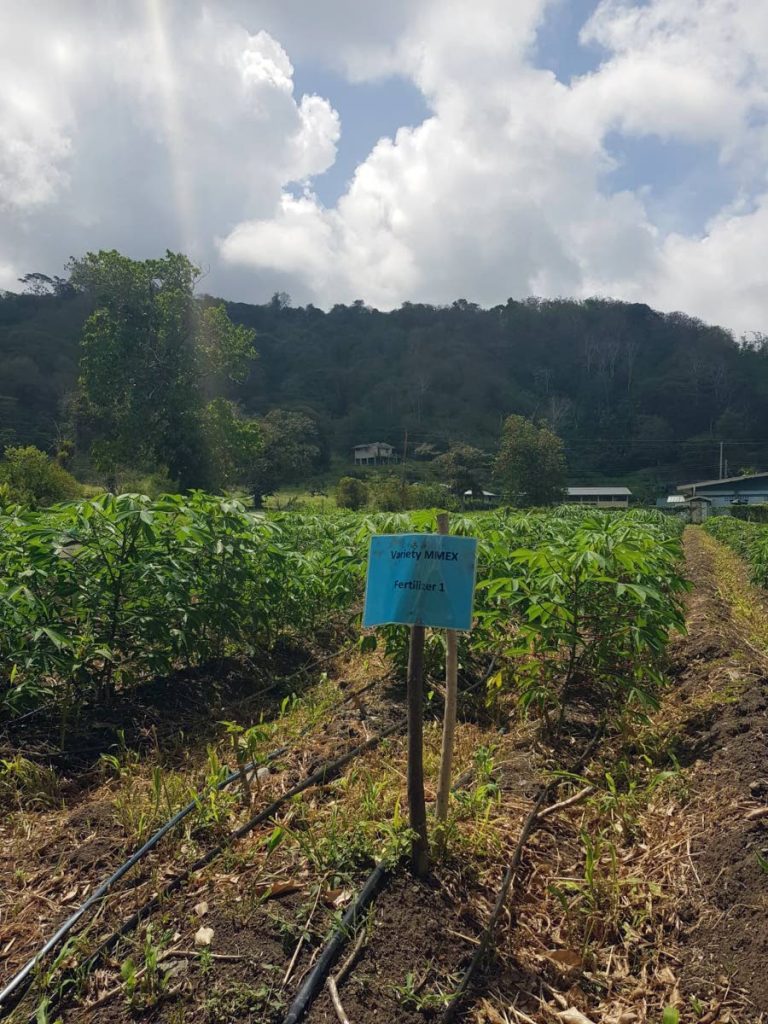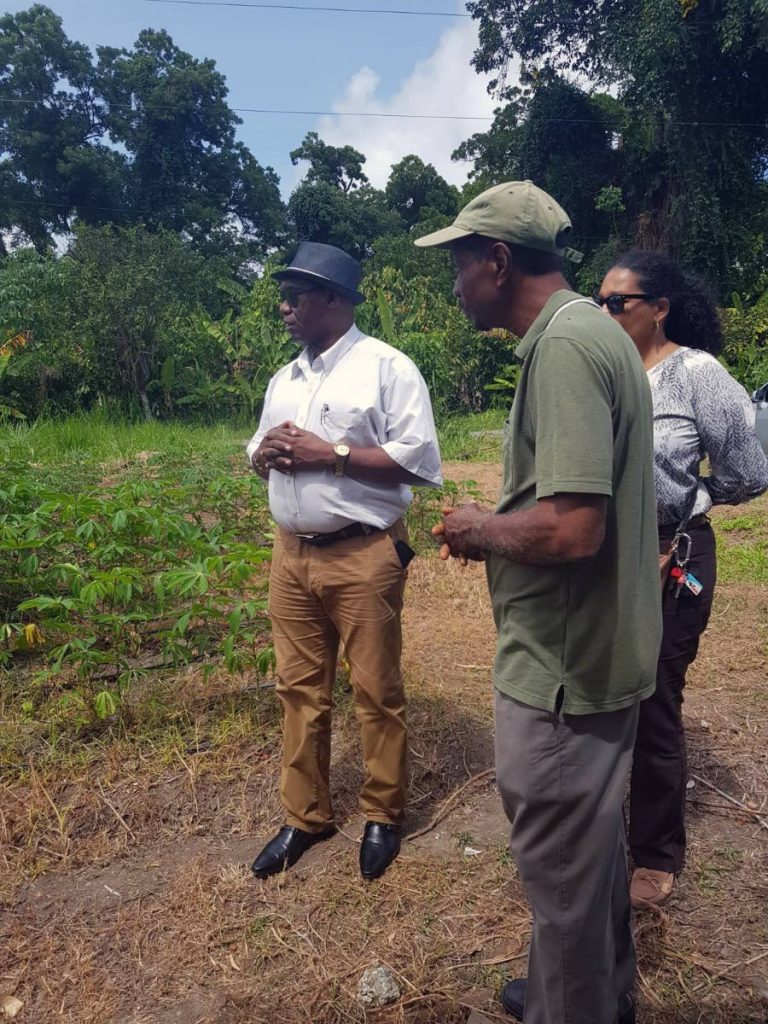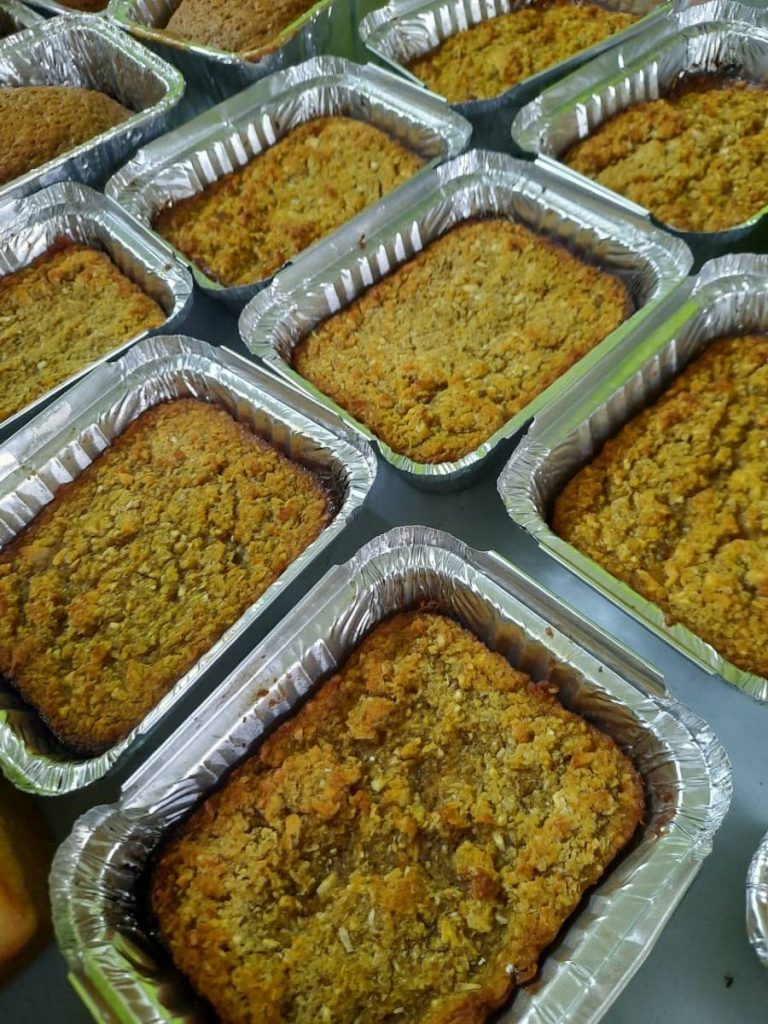Business
Newsday Reporter
The first sunbeams begin to streak across the morning sky, as the mist lazily dissolves into the clean, crisp air that saturates the undulating landscape miles away from the nearest village.
In the shallow valley below, two young men are hard at work, harvesting a mature cassava crop. Judging by the stains on their shirts and glistening arms, they have been at work even before the dawn.
The terrain is what is commonly known as “sapatay mud”; a thick clay soil that accumulates on your soles, making each step heavier than the last.
It’s a scene that is being replicated throughout TT – from Guayaguayare to Louis D’Or.

Cassava has a long history: it was a staple of the indigenous peoples of the West Indies and remained a popular part of the diet for centuries. A generation ago, the root crop would feature in Christmas pones, Saturday oil-down and mid-week cassareep-making.
Processing cassava is not easy work. While parents might have been the peelers and graters when they were young, today’s generation will not be easily enticed away from the gaming console or streaming movie to risk shredding their fingertips on a punched metal grater. But cassava’s popularity has been growing over the past year or so, as families weathering the pandemic have turned to the locally-grown tuber for a cheap source of available carbohydrate. This in turn can strengthen local food security.
Farmers agree, especially after their participation in the recent Farmer Field School programme, that cassava is in prime position to become king again in TT.

Several months before the covid19 pandemic was declared, the Food and Agriculture Organization of the UN (FAO) partnered with several entities across the Caribbean for the Cassava Industry Market Assessment and Technology Validation and Dissemination project.
To advance the modernisation of cassava value chains in Dominica, Suriname and TT, FAO joined forces with Colombia’s Clayuca Corporation to provide practical training for technical national-level agriculture staff in the three countries. The training focused on capacity-building for in-vitro processes for cassava tissue culture, as original planting material.
Tobago farmer Rasbert Lewis said he grew up in a cassava farming community, but the farmer field school increased his knowledge of the crop’s cultivation.
“Cassava is a good product, but you need to have a market where you can deal with it in a brisk way… in a fast way,” Lewis said.

“I am willing to sacrifice to make sure I have good yields, because the cassava business is a good business…it is something that we could live on. This is real great, but plenty people don’t understand it because they call it hard work. But it is an easy work.”
After completing the course, Lewis has planted and harvested crops at greater yields than before.
Pathleen Titus, technical adviser, Division of Food Production, Forestry and Fisheries, and chair of the Tobago Agribusiness Development Company (Tadco), said Tobago farmers benefited tremendously from the training, especially in terms of land preparation, which includes a critical step of soil testing.
“The liming and fertiliser application in farmer field school, we recognise, increases yields,” she said, adding that those processes were not usually done by farmers in the past.

Titus said the programme in Tobago began with 25 participants and also involved people from the Unemployment Relief Programme (URP), which does a lot food production on the island.
She summed it up, “They used some of what they learned in farmer field school and grew crops and benefited. We want to adopt (some of these practices) with other crops…maybe sweet potato and other crops.”
Titus said the establishment of Tadco is expected to process the higher yields of Tobago cassava in the coming months. It means that varieties such as butter stick, pickne moma, m mex and Maracas blackstick will be soon exposed to regional and international markets as farine, cassava flour, cassava logs and cubes, cassava punch and even cassava fruitcake.
“This project was very timely because (you’re) looking at increased production, new varieties which this product brought, new varieties with high yields. We were very glad this project came on stream when it did, because yes, we have varieties we can work with, we can contract farmers to provide products for the factory,” Titus said.

FAO representative (TT and Suriname) Reuben Robertson was pleased with the outputs of the programme, especially the immediate increase in yields and quality of crop.
“So we had about seven of these different varieties in a plot in Tobago to have them tested to determine their performance. We took everybody into the field to see and compare the different varieties alongside each other and what we found was that the new varieties produced much higher yields – in some cases three times as much as what was available locally,” he said.
Robertson believes cassava farmers throughout the country can increase their income substantially by using improved varieties and enhanced management practices.
As the Caribbean seeks to reduce its annual US$4 billion food import bill, Robertson projected that the local cassava industry can save up to US$1 million in foreign exchange per year. It might sound small, but it’s a start, as prioritising the development of the local cassava industry is now seen as a feasible and strategic option for reducing consumer reliance on foreign crops such as wheat, maize and rice.
In this context, FAO remains a committed partner in supporting farmers, the THA and the Ministry of Agriculture as TT grows its agriculture sector and enhances its food security.
(Submitted by the Food and Agriculture Organization of the United Nations)
